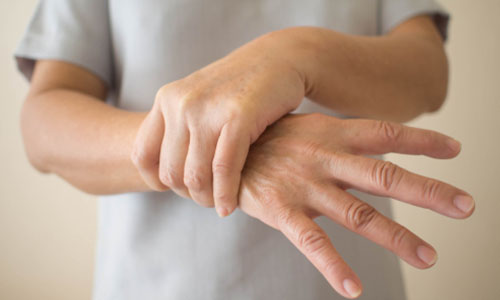Managing Tardive Dyskinesia: Risk Factors, Early Detection, and Effective Treatments

Patients with conditions such as schizophrenia, bipolar disorder, and major depressive disorder are at high risk for developing tardive dyskinesia (TD). The risk is significantly higher in those treated with first-generation antipsychotics compared to second-generation antipsychotics (SGAs).
Advances in Tardive Dyskinesia Diagnosis and Treatment: Early Detection and VMAT2 Inhibitors

The clinical manifestations of tardive dyskinesia (TD) can be disruptive, with common symptoms including choreoathetotic and stereotypic movements, particularly in the mouth, jaw, tongue, and face.
Managing Tardive Syndrome: Diagnosis Challenges and Treatment Approaches

The underlying causes of tardive syndrome (TS) are not entirely understood, but hypotheses suggest dopaminergic receptor hypersensitivity and oxidative stress as potential contributors.
Early Detection and Management of Tardive Dyskinesia in Patients Taking Dopamine-Receptor Blocking Agents

Tardive dyskinesia (TD) is a movement disorder commonly associated with dopamine-receptor blocking agents (DRBAs), including antipsychotics and metoclopramide.
Vocal Cord Dysfunction: A Rare but Severe Complication of Tardive Dyskinesia

In this case report, a 65-year-old female presented with chronic obstructive pulmonary disease, major depressive disorder on risperidone, tardive dyskinesia (TD), and dysphagia presented with worsening shortness of breath.
Managing Painless Legs and Moving Toes Syndrome With Individualized Treatment

Painless legs and moving toes syndrome is a rare movement disorder characterized by semi-continuous, involuntary toe movements without associated pain. This report describes a 48-year-old woman with the condition in the context of chronic neuroleptic use.
Expert Insights on Telehealth’s Role and Limitations in Tardive Dyskinesia Management

Telehealth has emerged as a valuable tool in assessing and managing tardive dyskinesia (TD), a movement disorder associated with prolonged use of dopamine receptor-blocking agents.
Video: Differentiating Tardive Dyskinesia From Parkinsonism for Accurate Treatment

In this video, Dr. Craig Chepke underscores the importance of distinguishing tardive dyskinesia (TD) from other movement disorders to ensure proper treatment. While increased awareness of TD is promising, over-diagnosing all abnormal movements as TD can lead to errors.
Instructional Video Highlights the Importance of AIMS Exam for Detecting and Monitoring Tardive Dyskinesia

In this instructional video, Dr. Rakesh Jain, co-chair of Psych Congress, emphasizes the importance of the Abnormal Involuntary Movement Scale (AIMS) in diagnosing and monitoring tardive dyskinesia (TD). Dr. Jain details the components, scoring, and procedure for conducting the AIMS exam.
Understanding the Differences Between Tardive Dyskinesia and Other Movement Disorders

Tardive dyskinesia (TD) is an involuntary movement disorder that develops as a side effect of long-term use of medications that block dopamine receptors, such as antipsychotics.
